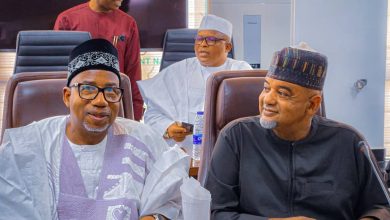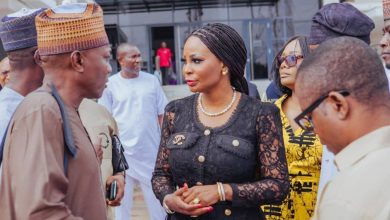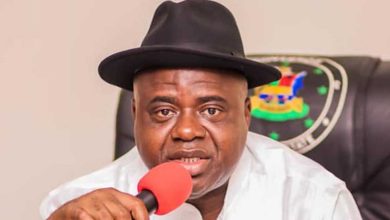Niger-Delta 16-Point Agenda: Has Aso Rock Not Fooled Pandef?

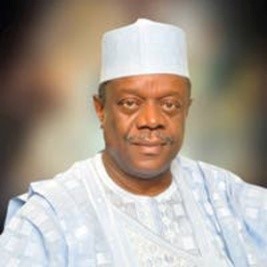
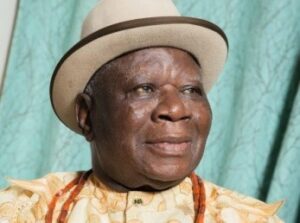

Approximately two and a half years ago, precisely on Tuesday, August 1, 2017, at a press conference in Abuja addressed by a chieftain and vational leader of Pan Niger Delta Elders Forum (PANDEF), Pa Edwin Clark, President Muhammadu Buhari was issued a –three month ultimatum to meet his promised 16-YarAdua point Agenda for the Niger Delta. Failure to comply on or before the expiration of the ultimatum on November 1, 2017, the communiqué had emphasized, PANDEF was to withdraw from all negotiations to mitigate the resurgence of militancy in the region.
On the heels of that media parley, a hybrid militant group, the Niger Delta Revolutionary Crusaders (NDRC), in a statement by its spokesman, Mr. Izon Ebi, rising from a meeting on Monday, July 31, 2017 had threatened to resume attacks on oil facilities in the Niger Delta by September 31st of the same year. It was potentially not an empty threat!
An extant fragment from their resolution stated: “We have resolved and are more determined to use all necessary means to take back our heritage by stopping all oil and gas exploration and exploitation in the Niger Delta come September 31, 2017. And when that time comes, heaven will not fall…We have resolved that resource control, fiscal federalism, and evolution of power are the only panacea. Anything short of that will not be acceptable to NDRC and the 21st-century agitators of the Niger Delta”.
Acknowledging and endorsing the diplomatic efforts of PANDEF, the militant further observed: “Our elders and distinguished personalities of PANDEF have tried in their advocacy. We realize that the balancing act of being elder statesmen and resource control advocates can be a very touchy act. That is why our goal is in consonance with the vision of Niger Delta’s emerging youth leaders in the clamour for resource control”.
But what really is the 16-Point Agenda? What prompted it? A brief history might suffice for simple and verifiable answers. Against any plausible arguments, both by fiat and imperial civilian aggression, Presidents Sani Abacha and Olusegun Obasanjo, in the way they used federal military might to crush militant opposition that attempted to stop oil from running through the pipes, had dealt rueful devastating blows on some communities in the Niger Delta. Typical or most memorable instances were Abacha’s fingerprints in the killing of the infamous Ogoni Nine. led by Ken- Saro-Wiwa and the Obasanjo’s Odi massacre, Bayelsa State, etc.
But there appeared to have been a long period of truce courtesy of late President Musa Yar Adua’s Amnesty Programme. He will always be remembered for having masterminded and spearheaded the pacification modality in 2009 as part of his peculiar responses to tackling the age-long scourge of restiveness in the volatile region. With the Amnesty granted in gratis, militants were not only urged to down-tool but were demanded to hand over their weapons within a specific allotted period if they were to benefit from the programme.
Among other things, the Amnesty, an integrated and diversified capacity-building and entrepreneurial package, consisted of having repentant militants trained formally and informally, at home or abroad, in any vocation or school of their choices as alternative means of a meaningful livelihood, order than the life-threatening act of militancy that was the bane. Not until the arrival of President Muhammadu Buhari, the programme ran smoothly without apprehensions.
However, just few hours into office in 2015, President Buhari had announced the termination of the Amnesty Programme. But a second thought in latter days saw him reviewed the decision with an impulsive promise that the programme will not be totally abandoned. To the militants, this was an ominous handwriting on the wall. To the creek militia, the President’s undercover indifference was suspected to be impending plans by government to completely abrogate the Amnesty Programme or default in its obligations.
So, spearheaded by the Niger Delta Avengers (NDA) and a coalition of militant factions, there was therefore a subtle resurgence of militancy in the region. Hence, to weather the incipient waves, the Federal Government was quick to set up a committee under the leadership of the national security adviser (NSA), Major-General Babagana Monguno, to reach out to elders and stakeholders in the region and broker peace with the warlords of the oil-flowing creeks.
Coordinated by the then minister of state for petroleum, Dr. Ibe Kachiukwu, the committee effectively collaborated with PANDEF and were able to calm the youths, and thus save the country another potential rounds of crisis. PANDEF’s interventionist role also paved the way for the Vice President, Prof. Yemi Osinbajo, to visit the theatre of war for the first time. On that occasion, he was presented with a 16-point demand by stakeholders and militants.
The 16-point document demanded for the following: Retention of the Presidential Amnesty Programme; establishment of a maritime university in Okerenkoko, Delta State; upgrade of Maritime Academy of Nigeria, Oron, Akwa Ibom State, to a university or degree-awarding institution; transparent arbitration on law and justice issues; reducing military presence in the Niger Delta; the plights of internally displaced persons, the Ogoni Clean-Up and Environmental Remediation.
Others were building or citing of critical infrastructure; increased security surveillance, relocation of administrative and operational headquarters of IOCs to the Niger Delta, power supply, economic development and empowerment of indigenes, inclusive participation in oil industry and ownership of oil blocs, restructuring and proper funding of the NDDC, strengthening the Niger Delta Ministry, the Bakassi question (a comprehensive resettlement plan for host communities and the displaced, and fiscal federalism).
The bargains were signed on dotted lines and submitted to government on November 16, 2016, with strong assurances by the Federal Government to respond to the issues. However, one year later, in spite of the assurances, when it was feared that government had tactically reneged in its promises by playing the Ostrich or cooking up excuses that mocked logic, PANDEF held the aforementioned press conference on August 1, 2017 at the end of which it forwarded a communiqué to the Presidency.
On the strength of perceived filibustering and calculated insincerity, PANDEF’s plea to the President therefore was no less diplomatic than it was vociferous in content: “We wish to urge the Federal Government to, as a matter of urgency, implement the pronouncements made by the Acting President, His Excellency, Professor Yemi Osinbajo, SAN, GCON, during his fact-finding visits to the Niger Delta region, and to set up, without delay, the Federal Government dialogue team to engage PANDEF towards resolving the pending issues contained in the forum’s 16-point demands on behalf of the people of the Niger Delta region, ON or BEFORE November 1, 2017 (one year anniversary of our meeting with the His Excellency, President Muhammdu Buhari”, the group stated.
Counting from when this notice was passed to today, enormous volume of oil has passed through the surface and underground pipes that crisscrossed the oil-rich swamps and dehumanising slums of the Niger Delta, yet nothing tangible seems to have been done. In January 2020, the now national chairman of PANDEF, Air Vice Marshall Idongesit Nkanga (rtd), in an interview with Vanguard (as reported by Perez Brisibe, January 6, 2020), broke the ice on the matter and observed that there were no ongoing talks with the Presidency on the matter since discussions on it seemed to have “gone monologue”.
A worried but helpless AVM Nkanga who, nonetheless, described the establishment of the Maritime University in Okerenoko as “just one out of the 16 demands made”, further observed: “It wasn’t something that was supposed to have been abandoned because when we submitted it then, the President said that he will use it as a working paper. Then they said they are setting up a Strategic Work Implementation Plan but by the time that went to the Ministry of Niger Delta, PANDEF was not consulted. So, we do not know what has happened. Nobody is talking to nobody and that is the situation on ground today. But these are issues we cannot sleep over. Right now, there are no discussions going on as regards the 16-point agenda”.
It would appear that some of the crises in the Niger Delta are fuelled by government’s insincerity and unjustifiable delays to honouring mutual agreements or act in true patriotism. The Federal Government should not be quicker to act decisively and with a sense of urgency only when a matter directly affects the flow of oil through the pipes, but pretend to forget whatever bargains were reached to make that possible. Such intrigues are bound to boomerang in the explosive oil-rich delta.
On the other hand, against all manner of self-justifying excuses, PANDEF, governors and other critical stakeholders in the South-South in abhorrence of the crab-syndrome, by now ought to have some landmarks to point to in justification of their collective vision and desire to develop the Niger Delta. They should begin to talk and act in sync and sincerity than in fractious arms of self-denigrating political factions. For now, there seems to be too many ideas without practical application.

